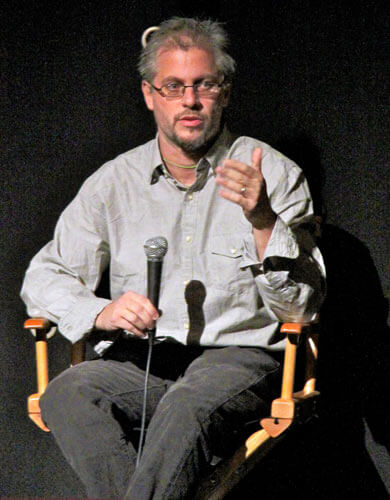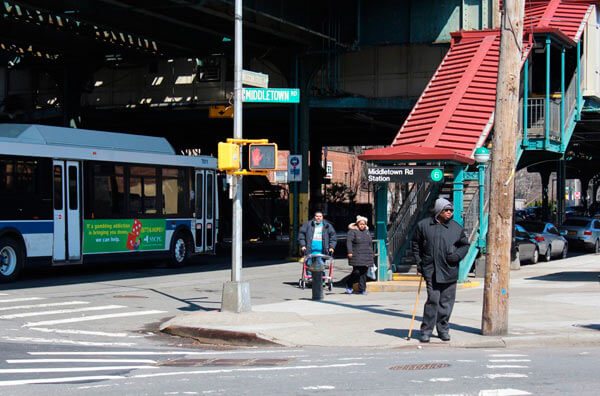By Les Slater
Four years later than he lawfully should have, Mayor Michael Bloomberg has demitted office (for the benefit of some who may take issue with “lawfully”, we would willingly substitute “morally” or “ethically”). Be that as it may, the mayor saw fit to embark on a “victory lap” around the boroughs as his 12-year stint drew to a close. And doubtless there would be those who agreed that there was much about his time calling the shots that justified this celebratory turn. But just as surely do we know that among residents of this city, a thumbs-up to the Bloomberg years is well shy of a universally held view.
Coming into office just short months after 9/11, Bloomberg must be given credit for the preventive measures that have kept New York free of any untoward happenings further compromising our sense of security. In facing up promptly to what had dramatically zoomed to utmost priority, Bloomberg correctly had a cold shoulder reaction to the entreaty of his predecessor, Rudolph Giuliani, who thought it would be in the best interest of us all to have him stay on a bit longer, given the city’s troubled post-9/11 state. Albeit in a somewhat different plot sequence, history would repeat itself eight years later.
But taking charge at City Hall following eight years of Giuliani’s abrasive, confrontational style that was especially evident in his poor relationship with people of color, Bloomberg by contrast established from the outset a more amiable environment. Policy-wise, New Yorkers would always be grateful for the tough stand the mayor took on gun control and his unflagging advocacy on health issues like obesity and the harmful effects of smoking. Bloomberg’s assumption of a national leadership role in the battle against gun rights crazies and manufacturers financing them is indeed a hallmark of his tenure in which the city could take particular pride. And although there was to it the appearance of authoritarian over-reach, Bloomberg’s much ballyhooed attempt to ban jumbo-size sodas was well intentioned public health policy.
Bloomberg is always likely to cite among his accomplishments a New York City school system he figures to be in much better shape today than when he took office. That rosy assessment, not surprisingly, isn’t shared across the board. There is, among many stakeholders in the mix, much opposition to the so-called Bloomberg reforms, beginning with the mayor’s early bid for more direct control of education policy and substantial expansion of the use of charter schools in the system. Reportedly, Mayor de Blasio will be doing some tinkering of his own and, if so, we’ll see how that changes the landscape down the road. But there’s no doubt that Bloomberg’s sweeping changes would have found favor with many, not least his closing of a number of under-performing schools in the system.
In selecting and sticking with Raymond Kelly as police commissioner for his entire term, Bloomberg placed responsibility for both the city’s protection from outside threats and control of domestic crime in capable hands. New York’s enviable crime statistics, compared to other cities around the country, large and small, is another Bloomberg legacy item that shouldn’t rationally give rise to any contradictory chorus.
It is in the very same street crime area, though, that we begin to see some of the qualities about the departed mayor that detract from the overall good in the package. Perhaps Bloomberg’s greatest failing, in having stewardship of a city like New York, is his apparent inability to approximate any ground-floor perspective. Sooner or later with Bloomberg, it becomes obvious that his gaze upon things is that of who and what he is: a tycoon used to having things his way. Any challenge to his interpretation of whatever was up for discussion was likely to bring a display of what we came to know as the Bloomberg testiness. The stop-and-frisk campaign organized by the police was a case in point, as both he and Commissioner Kelly stuck to a reality-defying insistence that there was no racial profiling involved in the undertaking. Worse, the sustained media interest that put Bloomberg on the defensive prompted from him the quite alarming declaration that, in truth, there ought to have been more stops of persons of color and less of whites. It was the kind of intemperate retort that, even if supported by some statistical calculation, he would have withheld, had his prickly side not been hastily moved to such an incendiary remark.
Bloomberg’s disconnect from folks on the strugglers side of the fence was repeatedly obvious along the way of his tenure as he pursued pet projects. The Bloomberg fetish with bicycles, for one thing, got to be a big deal in the city, bike lanes springing up all over. Clearly, there was little or no consideration given to how the creation of this bicycle utopia would further impact, for instance, an already dicey parking situation across the city – something to which working stiffs relate, that obviously got short shrift in the mayor’s design.
But there’s nothing about the Bloomberg years that will quite equal the assault on this city’s sensibilities that was his strong-armed move to defy existing law and grab a third term. The complicity of Council Speaker Christine Quinn and Bloomberg in the pact to make the three-term deal happen remains an ugly city stain…which will forever make Bloomberg’s tenure, regardless of highlights, an asterisked one.
Editor’s Note: The views of the author are his own.

















